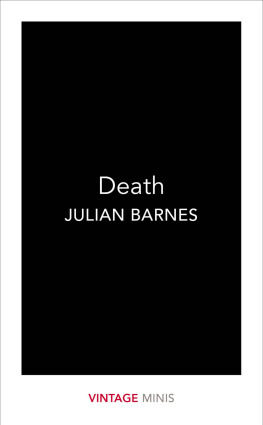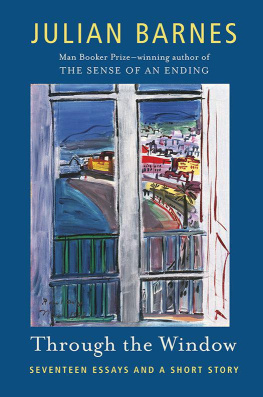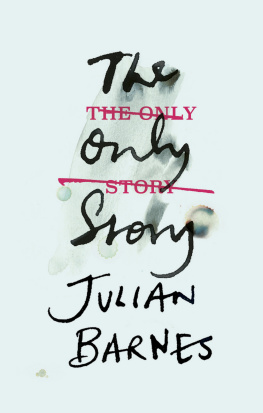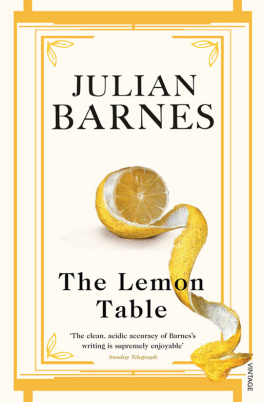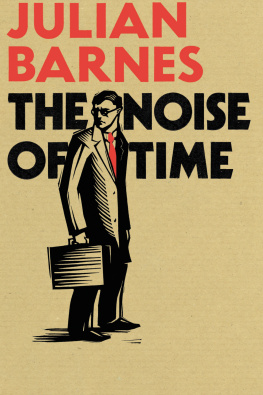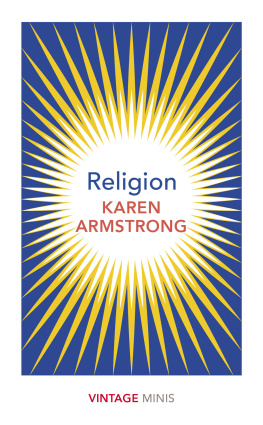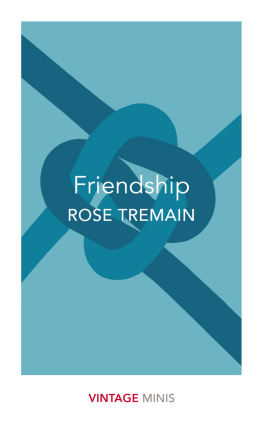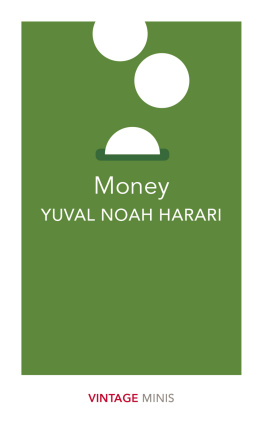This ebook is copyright material and must not be copied, reproduced, transferred, distributed, leased, licensed or publicly performed or used in any way except as specifically permitted in writing by the publishers, as allowed under the terms and conditions under which it was purchased or as strictly permitted by applicable copyright law. Any unauthorized distribution or use of this text may be a direct infringement of the authors and publishers rights and those responsible may be liable in law accordingly.
Epub ISBN: 9781473548459
Version 1.0
1 3 5 7 9 10 8 6 4 2
VINTAGE
20 Vauxhall Bridge Road,
London SW1V 2SA
Vintage Classics is part of the Penguin Random House group of companies whose addresses can be found at global.penguinrandomhouse.com.
Extracts from Nothing to be Frightened of copyright Julian Barnes 2008
Julian Barnes has asserted his right to be identified as the author of this Work in accordance with the Copyright, Designs and Patents Act 1988
First published in Great Britain by Jonathan Cape in 2008
This short edition published by Vintage in 2017
Extracts from Chasing Daylight by Eugene OKelly ( Eugene OKelly 2006) reproduced by kind permission of McGraw-Hill Companies, Inc.
penguin.co.uk/vintage
A CIP catalogue record for this book is available from the British Library
WHEN WE LET the mind roam to the circumstances of our own death, there is usually a magnetic pull towards the worst case or the best case. My worst imaginings usually involve enclosure, water, and a period of time in which to endure the certainty of coming extinction. There is, for instance, the overturned-ferry scenario: the air pocket, darkness, slowly rising water, screaming fellow mortals, and the competition for breath. Then there is the solitary version of this: bundled into the boot of a car (perhaps your own) while your captors drive from one cashpoint to another, and then, when your credit card is finally refused, the giddying lurch from river bank or sea cliff, the splash, and the greedy glug of water coming for you. Or the analogous, if more improbable, wildlife version of this: being taken by a crocodile, dragged under water, losing consciousness and then regaining it on a shelf above the waterline in the crocs lair, and realizing that you have just become the waiting contents of the beasts larder. (And such things happen, in case you doubt.)
The best case, in my fantasizing, used to turn on a medical diagnosis which left me just enough time, and just enough lucidity, in which to write that last book the one which would contain all my thoughts about death. Although I didnt know if it was going to be fiction or non-fiction, I had the first line planned and noted many years ago: Lets get this death thing straight. But what kind of doctor is going to give you the diagnosis that suits your literary requirements? Im afraid theres good news and bad news. Tell me straight, Doc, I need to know. How long? How long? Id say about 200 pages. 250 if youre lucky, or work fast.
No, it isnt going to happen like that, so its best to get the book done before the diagnosis. Of course, there is a third possibility: you start the book, you are nearly halfway through and then you get the diagnosis! Maybe the narrative is flagging a bit by this stage, so enter the chest pain, the fainting fit, the X-rays, the CAT scan Would that, I wonder, look a little contrived? (The readers group confers. Oh, I always thought he was going to die at the end well, after the end, didnt you? No, I thought he might be bluffing. I wasnt sure he was even ill. I thought it might be, what do you call it, meta-fiction?)
It probably isnt going to happen this way either. When we imagine our own dying, whether best or worst case, we tend to imagine dying lucidly, dying while aware (all too aware) of what is going on, able to express ourselves and understand others. How successfully can we imagine dying and the long lead-up to the event itself in a state of incoherence and misunderstanding? With the same original pain and fear, of course, but now with an added layer of confusion. Not knowing quite who anybody is, not knowing who is alive or dead, not knowing where you are. (But just as shit-scared anyway.) I remember visiting an elderly and demented friend in hospital. She would turn to me, and in her soft, rather genteel voice which I had once much loved, would say things like, I do think you will be remembered as one of the worst criminals in history. Then a nurse might walk past, and her mood change swiftly. Of course, she would assure me, the maids here are frightfully good. Sometimes I would let such remarks pass (for her sake, for my sake), sometimes (for her sake, for my sake) correct them. Actually, theyre nurses. My friend would give a cunning look expressing surprise at my naivety. Some of them are, she conceded. But most of them are maids.
My father had a series of strokes which reduced him, over the years, from an erect man of my height, first to a figure hunched over a Zimmer, his head cocked in that awkward angled lift the frame compels, and then to the half-humiliated occupant of a wheelchair. When the social services came to assess his level of incapacity, they explained that he would need, and they would pay for, a handrail to help him from bed to door. My mother overrode the suggestion: Not having that ugly thing in the room. She maintained that it would spoil the bungalows decor; but her refusal was, I now suspect, an oblique way of denying what had happened and what might await her too. One thing she did allow to my surprise was an alteration to Dads armchair. This was the sturdy green high-backed Parker Knoll in which Grandpa used to read his Daily Express, and mistake Grandmas stomach for the telephone. Now, its legs were extended with metal sheaths, so that Dad could get in and out more easily.
This slow physical crumbling was paralleled by an erosion of my fathers speech: of his articulation, and memory for words. (He had been a French teacher, and now his langue was going.) I see again the shuffle-and-push of his slow Zimmer progress from lounge to front door when he came to see me off: a stretch of time which felt endless, and where every conversational topic sounded utterly false. I would pretend to linger, look searchingly at a jug of flowers on the sideboard, or pause to observe again some knick-knack I had always disliked. Eventually, the three of us would make it to the front mat. On one occasion, my fathers farewell words were, And next time, bring bring Then he got stuck. I didnt know whether to wait, or, with a pretence of understanding, nod agreeingly. But my mother said firmly, Bring who? as if my fathers mental fallibility were something correctible by the right sort of questioning. Bring bring His expression was now one of furious frustration at his own brain. Bring who? my mother repeated. By now the answer was so obvious and unnecessary that I wanted to run out of the door, jump in the car and drive away. Suddenly, Dad found a way round his aphasia. Bring Julians wife. Ah, relief. But not quite. My mother, to my ear not sounding all that sympathetic, said, Oh, you mean P. thus turning my schoolmaster father into some test-failing schoolboy.
He would stand at the front door, crouched over his frame with its stupid, empty metal basket clipped to the handlebars; his head would be tilted, as if he were trying to prevent the action of gravity on his lower jaw. I would say goodbye and set off the dozen yards or so to my car, whereupon inevitably my mother would remember something, come at a trot down the little curve of tarmac (her hurried gait emphasizing my fathers immobility) and tap on the window. I would lower it reluctantly, guessing what she was going to say. What do you think? Hes de-teriorated, hasnt he? I would look past my mother to my father, who knew we were talking about him, and knew that I knew that he knew. No, I would usually reply, out of loyalty to Dad, because the only alternative would have been to bellow, Hes had a fucking stroke, Ma, what do you expect volleyball? But she would judge my diplomatic reply proof of inattention, and as I slowly let out the clutch and inched my way down the tarmac, would hold on to the window and give examples of the deterioration I had failed to observe.

